Pullmantur
History, Review, Itineraries, Ships, Deck Plans, News
Pullmantur fleet
Review of Pullmantur
Pullmantur Cruises (officially Pullmantur Cruceros, pullmantur.es) was a Spanish passenger shipping company headquartered in Madrid. It began operations in the late 1990s as an offshoot of the Madrid-based travel agency "Pullmantur." In 2006, through its parent company, Pullmantur Cruises was acquired by RCCL (Royal Caribbean Cruises Ltd).
Due to the Coronavirus crisis, Pullmantur suspended its entire fleet's passenger shipping operations (all 4 vessels) by canceling all voyages with pre-scheduled departures from March 15 to November 15, 2020. Operations were planned to resume on November 20th (Monarch, Sovereign) and November 28th (Horizon). All affected bookings were refunded 125% in FCC (future cruise credit) and transferred with rebooking.
On February 1, 2023, Pullmantur's bankruptcy trustee/administrator put the brand "Pullmantur Cruises" up for sale, allowing interested parties to submit non-binding offers (minimum EUR 177K / ~USD 193K) until February 27th. Potential buyers were required to submit an operational structure and business plans for developing the brand. However, the auction ended without any bids placed, and no winner was declared.
Company History
In 2017, the company served over 1/3 (34%) of all Spanish cruise ship passengers. Its market share in Spain increased by 6.5% compared to 2016. Spain's cruising market, with an annual capacity of around 0.5 million passengers, saw Pullmantur's offerings dominate. The most popular cruise destinations for Spanish residents included the Mediterranean, Baltic (Norwegian Fjords), and the Canary Islands. In the Canaries, Pullmantur was the largest by vessel capacity and the number of scheduled itineraries. The company's last President and CEO was Richard Vogel.
Pullmantur offered high-quality, high-value cruising experiences with a strong Spanish-Mediterranean flair. The company gained its foothold in the Spanish market when the 1971-established (in Madrid) travel agency Pullmantur chartered MS Seawind Crown (1991-2002/1961-built as "MS Barcelona"/2004-scrapped at Alang) from Premier Cruises in the late 1990s.

Pullmantur experienced moderate success. When Premier Cruise Line (founded in 1983) went bankrupt in 2000, Pullmantur acquired its largest and most modern ship, the SS Oceanic (1965-2012), and established its own cruise brand. In 2001, Pullmantur began operating voyages from Barcelona. At the time, few could predict the impact this new brand would have on Spanish cruising and the industry as a whole.
Spain was just beginning to embrace cruising in 2001, mostly on foreign vessels and departing from foreign ports. Pullmantur's establishment, with weekly departures of Oceanic from Barcelona, propelled Spanish cruising into overdrive. With all-inclusive fares, quality products, and smart marketing, Pullmantur had an effect in Spain similar to that of CCL-Carnival Cruise Line in the USA. Pullmantur made cruise travel popular and affordable to the masses.
The company's growth in popularity and fleet expansion was rapid. In 2002, Pullmantur purchased the "Love Boat" Pacific Princess (now Azamara Onward) from Princess Cruises. In 2003, the company acquired Holiday Dream (originally Hapag-Lloyd's MS Europa/former Star Cruises' SuperStar Aries). After buying three ships of its own, in 2004 Pullmantur chartered R-Five (now Oceania Nautica) from the creditors of the bankrupt Renaissance Cruises, marketing it as Blue Dream. In 2005, Pullmantur added R-Six (now Azamara Journey), marketed as Blue Star.
R-Five left Pullmantur later in 2005 when the company purchased R-Six and renamed it Blue Dream (the marketing name previously assigned to R-Five). Delphin Seereisen (the charterer of R-Seven/now Azamara Quest) had gone bankrupt, and in 2006, Pullmantur also acquired R-Seven, renaming it Blue Moon. The same year, in its final acquisition, Pullmantur purchased Pacific Sky from P&O Australia (formerly Princess Cruises' Sky Princess) and renamed it Sky Wonder.
In 2006, it was announced that Pullmantur, including its airline and tour operator (sister companies), had been acquired by the world's second-largest cruise company, RCCL/RCG/Royal Caribbean Group. This acquisition provided Pullmantur with the backing of a much larger, wealthier company, enabling its continued expansion and strengthening RCCL’s presence in the European market.
In 2016, RCCL sold 51% of its shares to Springwater Capital LLC (a Madrid-based private equity firm) while retaining a 49% stake in the Pullmantur joint venture, which also included CDF (Croisieres de France). RCCL maintained full ownership of the cruise vessels and aircraft operated by both brands, which were leased into the joint venture.
The following table shows statistical data (2020) about Pullmantur's market share (as fleet and passenger capacity/ship-berth numbers) in comparison to other major cruise companies.
| Parent Company | Subsidiaries | Fleets (vessels per brand) | Passenger Capacity (berths per brand) |
|---|---|---|---|
| Carnival Corporation | Carnival | 26 | 71,300 |
| Carnival Corp | Princess | 17 | 42,000 |
| Carnival Corp | AIDA | 13 | 29,300 |
| Carnival Corp | Costa | 12 | 29,200 |
| Carnival Corp | Holland America | 15 | 25,900 |
| Carnival Corp | P&O UK | 8 | 18,600 |
| Carnival Corp | P&O Australia | 5 | 8,200 |
| Carnival Corp | Cunard | 3 | 6,700 |
| Carnival Corp | Seabourn | 4 | 2,000 |
| Carnival Corp | TOTAL | 103 ships | 233,200 berths |
| RCCL (Royal Caribbean Cruises Ltd) | RCI (Royal Caribbean International) | 26 | 84,700 |
| RCCL | Celebrity | 13 | 25,500 |
| RCCL | TUI | 6 | 14,900 |
| RCCL | Pullmantur | 4 | 7,600 |
| RCCL | Marella | 3 | 4,000 |
| RCCL | Azamara | 3 | 2,100 |
| RCCL | Silversea | 9 | 2,600 |
| RCCL | TOTAL | 64 ships | 141,400 berths |
| NCLH (Norwegian Cruise Line Holdings Ltd) | NCL (Norwegian Cruise Lines) | 16 | 46,600 |
| NCLH | Oceania | 6 | 5,200 |
| NCLH | RSSC (Regent) | 4 | 2,600 |
| NCLH | TOTAL | 26 ships | 54,400 berths |
| (other large brands) | 1- MSC 2- Disney 3- Star Cruises (GHK) 4- Dream Cruises (GHK) 5- Hurtigruten 6- Viking Ocean | 1- 15 2- 4 3- 5 4- 2 5- 15 6- 5 | 1- 44,600 2- 8,500 3- 8,500 4- 6,800 5- 6,700 6- 4,700 |
Before the COVID crisis, Pullmantur had around 50% of Colombia's cruising market, which it had served since 2014. By 2019, Colombia was Pullmantur's third-largest source market (after Spain and Brazil), served year-round with Pullmantur Monarch. The ship was homeported in Cartagena, Colombia, and Colon, Panama, for roundtrip Southern Caribbean itineraries. Colombia is currently South America's third-largest cruise market, after Brazil and Argentina.
In mid-June 2020, Pullmantur Cruceros' owners (Cruises Investment Holding and RCG/Royal Caribbean Group) filed for a supervised reorganization/bankruptcy under Spain's insolvency laws, marking the end of Pullmantur as a cruise brand.
Reportedly, the crew dismantled and removed machinery, various equipment, furniture, and artworks from both vessels (Monarch and Sovereign) while they were berthed in Port Naples, Italy (at Stazione Marittima di Napoli cruise terminal / Naples' Maritime Station). All company employees were notified of the decision, which was explained as a result of the economic impact of the Coronavirus pandemic. Customers with booked Pullmantur cruises were offered the option to rebook with other RCCL-owned companies.
Based on rumors, Pullmantur's ships were either to be scrapped or sold (with a change of ownership). According to unofficial information, two ships were put up for sale: Monarch (1991-built, 2018-refurbished) for USD 125 million and Horizon (1990-built, 2019-refurbished) for USD 65 million. The fleet's oldest vessel was Sovereign (1988-built, 2015-refurbished), and its scheduled 2020 drydock refurbishment was canceled.
Eventually, the three vessels (Monarch and Sovereign in 2020, and Horizon in 2022) were dismantled at Turkey's Aliaga Ship Breaking Yard (near Izmir). In September 2020, Pullmantur began asking its followers on Facebook for feedback on what they expected from the Spanish cruise line when it resumed voyages. Among the questions was whether they would be willing to pay 10-15% higher fares than previously offered. The company was to resume operations with only one ship (Horizon), which at the time was in cold lay-up status, docked in Port Eleusis (Greece).
In late November 2020, documents were published stating that as part of the company's restructuring plan, Pullmantur could resume operations in December 2021 with a fleet of two Millennium-class ships (transferred from Celebrity Cruises) (unspecified). At the time, Celebrity's Millennium-Class fleet included 4 vessels (Constellation, Infinity, Millennium, Summit). The financing deal with Royal Caribbean Group (owner of 49% of Pullmantur's shares) included a revised business plan based on all rebookings (with FCC) of former Pullmantur customers.
Pullmantur Cruising Experience
Pullmantur was the largest Spain-based cruise company. It primarily appealed to Spanish passengers, although voyages on Pullmantur vessels were also sold by travel operators in the Spanish-speaking market. Like most major cruise lines, Pullmantur attracted a wide variety of passengers, though naturally, most passengers on its cruises were Spanish or Brazilian (during the winter months). However, passengers of all types and ages could be found, and non-Spanish-speaking guests from Canada or Northern Europe were also common.
The primary shipboard language was Spanish, but many staff members spoke English as well. Announcements were made in both Spanish and English to accommodate international cruisers. English-speaking passengers who wish to immerse themselves in Spanish culture will certainly enjoy voyages with Pullmantur. The shipboard currency varied by itinerary. Typically, the onboard currency was EUR for Baltic and Mediterranean cruises, while in the Caribbean, it was USD.
Most Pullmantur ships offered an "all-inclusive" product. Some extras, like branded alcoholic drinks, were included in the cruise price. However, since October 2014, alcoholic beverage packages were sold separately. Currently, Pullmantur's prices included tea, coffee, water, and juice. Most ships did not operate during the northern hemisphere's winter season. They were either laid up or chartered to other cruise lines, including the Brazilian Viagens CVC.
In 2017, Pullmantur began offering electric bike tours led by guide instructors. Helmets, water, and energy bars were provided.
In early December 2018, Pullmantur Cruceros introduced the "Pullmantur Visa" card through a partnership with Bankinter Consumer Finance, which specializes in credit cards and consumer loans. The Pullmantur Visa card makes booking and financing easier, allowing payments to be spread over a period of up to 18 months. This credit card is available only for the Spanish market (Spanish nationals and residents of Spain) and does not have maintenance fees. All cruise customers who make payments via Pullmantur Visa receive a return of up to 6% on deferred purchases, as well as a EUR 20 gift voucher when making non-Pullmantur-related purchases.
In June 2019, Pullmantur introduced a new all-inclusive sports program fleetwide. The program offers a wider variety of sporting activities, including toning and yoga classes, cardio workouts, water aerobics, body exercises, Zumba dancing, meditation, and custom-designed sessions for couples and families. The program is led by professional resident sports instructors who guide all activities. Additionally, personal trainers and small-group sessions are available upon request.
Pullmantur Fly-Cruise Deals
For 2018 (April 23 through October 29), Pullmantur Cruceros signed an agreement with Iberia Airlines (Spain) to secure over 90,000 plane seats for cruise passengers booking "flight and cruise" deals. Iberia flights connect the ships' homeports with the passenger's home country.
Iberia's regular flights connect Spain (Madrid and Barcelona) with port cities in Italy (Trieste), Greece (Athens), Germany (Rostock), Finland (Helsinki), and Norway (Trondheim). In these cruise ports, Pullmantur offers both embarkation and disembarkation on itineraries in the Baltic Sea (Scandinavia and Russia, Norwegian Fjords), Greek Isles (from Piraeus-Athens), and the Adriatic Sea (from Venice).
Most Pullmantur cruise itineraries can be booked with air-inclusive cabin rates. Booking "flight and cruise" deals allows passengers to check luggage at Spanish airports and receive it in their staterooms.
Pullmantur - CDF (Croisières de France)
In early 2017, Pullmantur Group closed the offices of its subsidiary company Croisières de France (CDF) in Paris, France. The decision was made under the company's new leadership (Richard Vogel, Pullmantur Group's president and CEO) and aimed at refocusing efforts on the Spanish and Caribbean (Latin American) cruise markets. Since 2017, the company has not operated any France-dedicated vessels.
Bookings for both former CDF ships (Horizon, Zenith) are currently handled by the company's office in Madrid. Additionally, Pullmantur's Northern European itineraries have changed, with departures from Calais, France now replaced by Rostock (Warnemunde), Germany as the new Baltic Sea departure port, due to more efficient flights and transfers from Spain.
CDF started operations in 2008 with the MS Blu de France (which since 2011 has been operated by Saga Cruises as Saga Sapphire). Blu de France was replaced by the MV Horizon in 2012. In 2014, the MV Zenith was added to the CDF fleet. In early 2020, Zenith left Pullmantur's fleet. All scheduled 2020 Pullmantur Zenith cruises were transferred to Monarch.
Itinerary of Pullmantur
Pullmantur (officially "Pullmantur Crociere") is currently the largest cruise line based in Spain. The company primarily markets to Spanish passengers, although its voyages are also available outside the Spanish-speaking world. The line was relatively unknown outside of Spain until 2006, when Royal Caribbean announced it had acquired the Spanish company.
Pullmantur Cruise Itinerary Changes
Pullmantur Cruises is a subsidiary of Royal Caribbean Cruises Ltd (RCCL). The line operates the following ships:
- ms Majesty (1992) - previously operated by Royal Caribbean as "Majesty of the Seas" (until 2018)
- ms Monarch (1991) - previously owned by RCI as "Monarch of the Seas" (until 2013). The ship operated year-round Southern Caribbean cruises departing from Colon, Panama; Cartagena, Colombia; Willemstad, Curacao; and Oranjestad, Aruba.
- ms Sovereign (1987) - previously owned by RCI as "Sovereign of the Seas" (until 2008). The ship operated in the Western Mediterranean (from Barcelona) and also in South America/Brazil (from the homeports of Santos and Rio de Janeiro).
- ms Horizon (1990) - the ship operates in Europe year-round, offering Mediterranean cruises departing from Athens, Greece. It also operated in the Red Sea from Dubai, visiting Abu Dhabi, Khasab, Fujairah, and Muscat.
- ms Grandeur (1996) - currently operates as Grandeur Of The Seas (for RCI-Royal Caribbean). The ship joined Pullmantur in 2021 and was deployed in Northern Europe (Baltic Sea and Norwegian Fjords itineraries) with departures from homeports Trondheim, Norway, and Warnemünde-Rostock, Germany.
mv Zenith (1992) - for Pullmantur, the ship operated in Northern Europe (Norwegian Fjords), the Western Mediterranean (out of Barcelona), the Canary Islands (from the homeports of Tenerife and Gran Canaria), and in the Caribbean departing from Santo Domingo, Dominican Republic. Zenith's 2019 winter program (Canary Islands) also included Madeira Island (Funchal) and Morocco (Agadir), combined with Canary Islands ports such as Gran Canaria, Tenerife, La Palma, and Lanzarote. The program (Nov 17 through March 31, 2020) included a total of 20 itineraries. In early 2020, Zenith left Pullmantur's fleet and was sold to Peaceboat.
Pullmantur related cruise news
- Accidents
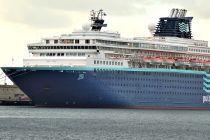
Data Bankruptcy to sell the last asset of the former operator Pullmantur Cruises
Pullmantur Cruises' bankruptcy administrator Data Bankruptcy intends to sell the last asset of the former operator. The administrator is expected to...
January 31, 2023 - Cruise Industry
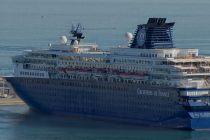
Pullmantur's ship Zenith arrives at Alang shipyard (India) for scrapping
On September 24th, the former Celebrity Cruises/Pullmantur cruise ship The Zenith (last renamed SINGA) arrived at Alang Shipyard (India) for...
September 30, 2022 - Accidents

Pullmantur Horizon cruise ship to be scrapped at Turkey's Aliaga Shipbreaking Yard
After ~2 years in Greece (moored at Port Elefsina/Eleusis), the last Pullmantur ship set sail on her final voyage: Pullmantur Horizon is heading to...
August 29, 2022 - Cruise Industry

First cruise ship to dock in Colombia is Windstar's Star Breeze
After remaining shut down during the past 17 months because of the COVID crisis, the historic port of Cartagena, the main tourist destination in...
August 27, 2021 - Cruise Industry

Pullmantur Cruises denies company's liquidation
Pullmantur Cruises announced it was currently holding meetings with potential investors for financing of the company's business plan. Pullmantur also...
February 22, 2021 - Cruise Industry
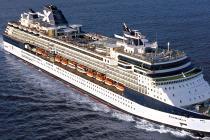
Pullmantur Cruises to resume operations with two Millennium Class ships
The insolvent Pullmantur Cruises might resume operations at the end of next year. Two Millennium-Class vessels from Celebrity Cruises could operate...
November 27, 2020 - Cruise Industry

Pullmantur returns to the cruise market?
Two months after Pullmantur Cruises filed for a supervised reorganization/bankruptcy (mid-July 2020, due to the ongoing pandemic), the company is...
September 25, 2020 - Cruise Industry
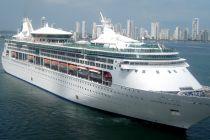
Royal Caribbean's Grandeur of the Seas remains part of the fleet
Royal Caribbean announced it will keep Grandeur of the Seas in the cruise fleet instead of transferring her out to RCCL's sister-brand Pullmantur...
August 27, 2020 - Cruise Industry

Pullmantur Cruises ships to be sold or scrapped
In mid-June 2020, Pullmantur Cruceros' owners (Cruises Investment Holding + RCCL-Royal Caribbean) filed for a supervised reorganization/bankruptcy...
June 22, 2020 - Cruise Industry
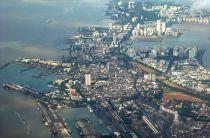
11 cruise ships disembarked 10000+ crew in Port Mumbai India
Beginning on Friday, June 12, and ending on June 28, a total of 11 cruise ships will call at Port Mumbai India to disembark 10,000+ Indian crew stuck...
June 13, 2020 - show more news

